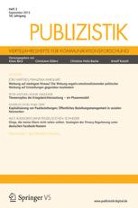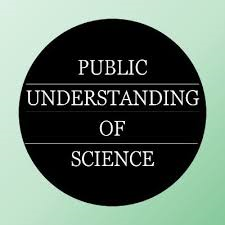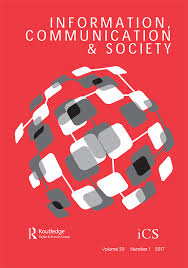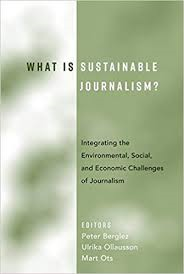Abstract
Wissenschaft und Journalismus beruhen auf unterschiedlichen Logiken. Aus Sicht der Systemtheorie überrascht es also nicht, wenn WissenschaftlerInnen Wissenschaftsjournalismus kritisieren. Gleichzeitig wird aber auch eine Medialisierung von Wissenschaft postuliert. Demnach würde sich Wissenschaft zunehmend an Medienlogiken orientieren. Diese Studie prüft explorativ, welche Kriterien WissenschaftlerInnen bei der Beurteilung journalistischer Artikel heranziehen und welche Aspekte sie loben und kritisieren. Dazu werten wir die Kommentare auf dem Blog „Climate Feedback“ qualitativ inhaltsanalytisch aus. Induktiv werden zunächst die angelegten Evaluationskriterien der WissenschaftlerInnen kategorisiert und dann den Überkategorien „journalistische Vermittlungsleistung“ oder „wissenschaftliche Informationsleistung“ zugeordnet. Unsere Ergebnisse, basierend auf 82 Blogeinträgen und den Kommentaren von 184 WissenschaftlerInnen im Zeitraum von 2015 bis 2017, zeigen, dass sich die WissenschaftlerInnen intensiv und sogar häufiger mit Aspekten der journalistischen als der wissenschaftlichen Leistung beschäftigen. Sie sehen die journalistischen Kriterien eher als erfüllt an, während sie das Fehlen wissenschaftlicher Standards kritisieren. Die beteiligten WissenschaftlerInnen kombinieren die Kommunikationsnormen beider Systeme. Für den Ansatz der Medialisierung von Wissenschaft ergibt sich der Befund, dass die Diffusion von Medienlogiken keineswegs zur Aufgabe von Logiken der Wissenschaft führen muss, sondern dass kompetente Akteure an der Schnittstelle zwischen Journalismus und Wissenschaft Mehrsystemkompetenz erwerben und anwenden können.

Walter, S., Görlach, J. & Brüggemann, M. Climate Feedback: Wissenschaft kommentiert Journalismus und entwickelt Mehrsystemkompetenz. Publizistik (2020). Available online at https://rdcu.be/b70SC




